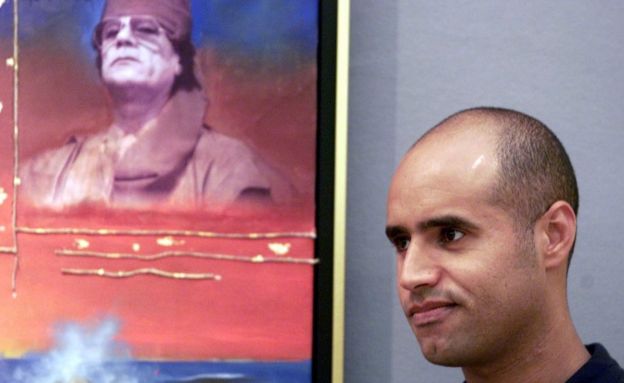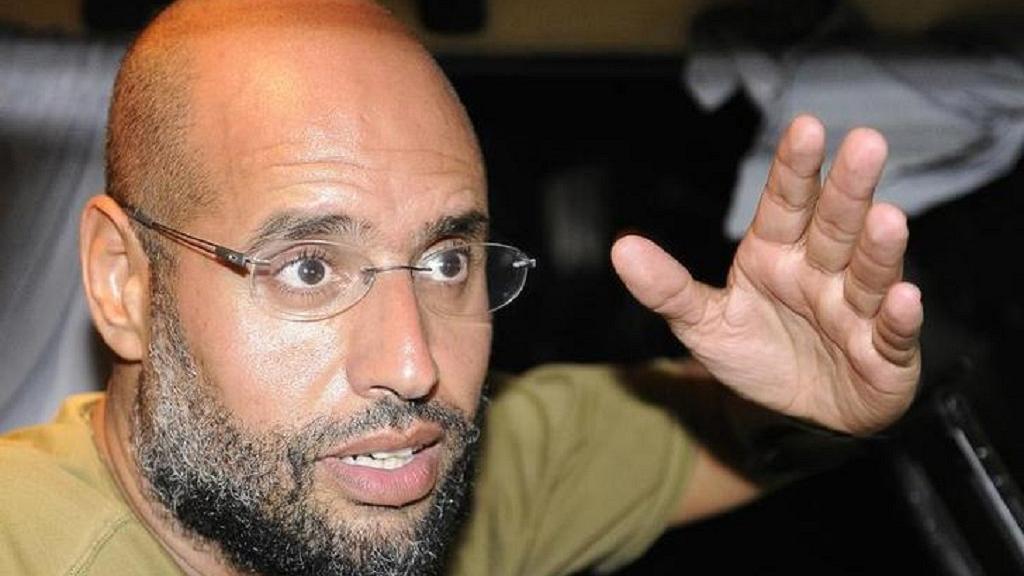The son of the former Libyan leader, Saif al-Islam Gadaffi, will contest in the upcoming presidential elections, a spokesperson for the Gadaffi family has said .
Basem al-Hashimi al-Soul told the influential local media agency, Egypt, that Saif al-Islam has the support and credentials required to end the chaos that has gripped Libya since the overthrow of his father Muammar Gadaffi in 2011.
“Saif al-Islam Gaddafi, the son of the former Libyan president, enjoys the support of major tribes in Libya so he can run for the upcoming presidential elections due in 2018,” said Libyan Tribal Chief and spokesperson of the Gaddafi family, Basem al-Hashimi al-Soul
Al-Soul says that a platform to launch the former first son’s presidential campaign will soon be launched.
“The platform includes some procedures that Saif al-Islam hopes the United Nations would adopt to help Libya move from the incumbent transitional period to stability.”
Libya is grappling with insecurity as different factions control different parts of the country.
Saif al-Islam Gadaffi hopes to unify the factions and restore peace and stability in the country that was once prosperous under his father’s rule.
“Saif al-Islam plans to impose more security and stability in accordance with the Libyan geography and in coordination with all Libyan factions,” al-Soul manifested.
This development follows the weekend announcement by the Eastern Libyan military commander, Khalifa Haftar, that he ‘would listen to the will of the free Libyan people’, interpreted as an indication that he might run in next year’s elections.
The United Nations backed Libyan Government of National Accord (GNA) has indicated that elections may be held in mid-2018.
“We believe that presidential elections will be held in the middle of 2018,” Mohamed Siala, GNAforeign minister, speaking to foreign reporters at the Valdai Panel Discussion in Russia.
Saif Al-Islam was released in June this year after six years of captivity by a militia group in the Libyan town of Zintan.
He had been captured in November 2011 after the fall of his father’s regime, and he was subsequently sentenced to death in absentia by a court in Tripoli.
Following his release, the International Criminal Court ordered for his arrest and surrender, which was backed by the GNA.
He is wanted by the ICC on charges of crimes against humanity during his father’s unsuccessful attempts to put down the rebellion that eventually led to the fall of his regime.
The United Nations is supporting the voter registration process as it seeks to reconcile rival factions and relaunch a political transition that would lead to new polls.
The UN Libya mission has previously said it hopes elections can be held by the end of next year, but has also acknowledged complex security, political and legislative challenges to organising a vote.
Libya last held elections in 2014 but the results were disputed, deepening divisions that emerged after the country’s 2011 uprising.
The poll led to an escalation of armed conflict and to rival parliaments and governments being set up in the capital and the east.
Saif al-Islam Gaddafi has been freed after six years in captivity.
His capture in southern Libya in November 2011, following three months on the run and weeks after his father’s death, was an ignominious end for a man once widely considered Colonel Muammar Gaddafi’s heir apparent.
Despite holding no official position in the Libyan government, he was long seen as the most influential figure in the country after his father who had been in power since 1969.
This stylish English-speaker was even considered the reformist face of the Libyan government – until the 2011 rebellion, and the government’s response.
As rebels closed in on the capital, the second of Gaddafi’s nine children vowed to fight to the end against the insurgents, accusing them of being drunkards, thugs and terrorists.
 Image copyrightPA
Image copyrightPABut after the rest of his family fled, or were killed, he ended up being held in the city of Zintan for almost six years, sentenced to death by firing squad in absentia by a court in Tripoli during that time.
The few pictures released in the last few years show he is missing fingers. The BBC’s John Simpson noticed he was missing part of a front tooth during one hearing early in his captivity.
And he is also wanted by the International Criminal Court (ICC), accused of crimes against humanity for his alleged role in the suppression of opposition protests in 2011.
Western links
Born in 1972, he played a key role in Libya’s rapprochement with the West between 2000 and the 2011 uprising.
Agency/ online reports














